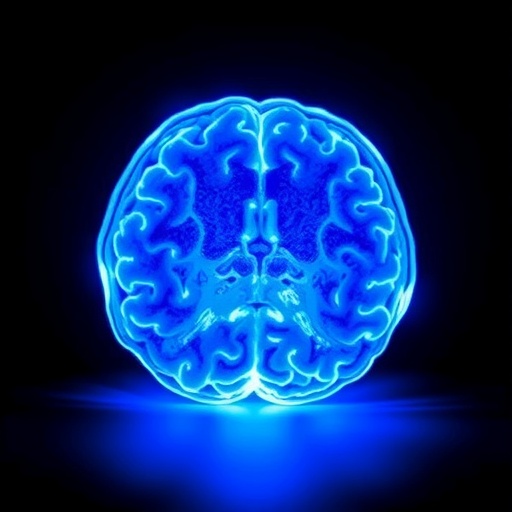
Recent advancements in medical imaging techniques and artificial intelligence have brought new opportunities for assessing various aspects of human health. One area of growing interest in this field is the use of retinal fundus imaging as a means to evaluate brain health. The study led by Tong and colleagues explores this innovative approach, demonstrating how retinal images, traditionally used for eye health assessments, can also providecritical insights into the brain’s condition.
The methodology employed in this research combines retinal imaging technology with clinical information prompts to enhance diagnostic accuracy. This integral approach not only streamlines the process of gathering necessary data but also encourages a more comprehensive evaluation of patient health. By examining the intricate details of the retina, health professionals may glean information that correlates with neurological conditions, potentially leading to earlier diagnoses of conditions such as dementia or other cognitive impairments.
The underlying principle of using retinal fundus imaging lies in the rich vascular network present in the eyes. This network serves as a window into the cardiovascular system, thus offering indirect insights into brain health. The study proposes that alterations in the retinal microvasculature could signal changes or issues in brain function and structure. As researchers delve deeper into this connection, they uncover potential pathways through which retinal assessments can inform on broader health metrics.
In their study, the researchers utilized advanced imaging techniques that capture high-resolution images of the retina. These images are then analyzed using sophisticated algorithms that can detect subtle changes in the retinal structure, such as thinning of the retinal nerve fiber layer or abnormalities in vessel architecture. These indicators have been correlated with neurodegenerative diseases, illustrating the potential of this method to serve as a non-invasive assessment tool.
Furthermore, the study highlights the importance of integrating clinical data with imaging findings. This dual approach allows for more nuanced interpretations of the retinal images. For instance, patient history regarding neurological symptoms, alongside retinal observations, may reveal patterns that suggest a higher risk for certain conditions. This fusion of data fosters an environment where clinicians are better equipped to make informed decisions regarding patient care.
One of the notable aspects of this research is its potential application in military medicine. Service members are frequently exposed to unique health risks, including traumatic brain injuries and other neurological challenges. The ability to quickly assess brain health through an easily accessible method like retinal imaging could revolutionize care for these individuals, providing timely interventions for those who may be at risk.
As the researchers discuss the implications of their findings, they emphasize the need for larger, multicenter studies to validate their results. While the initial findings are promising, further research is essential to establish clear guidelines and protocols for implementing retinal imaging in routine clinical practice. The excitement surrounding this field of study stems from the prospect of developing a standardized approach that can be disseminated across healthcare settings.
The ultimate goal is to create a framework where retinal imaging becomes a fundamental component of brain health evaluation. If integrated into regular health assessments, it could facilitate earlier detection of conditions that otherwise might go unnoticed until they are well advanced. This proactive approach to health diagnostics could lead to improved outcomes and enhanced quality of life for patients.
As this research advances, the collaboration between ophthalmologists, neurologists, and data scientists will be crucial. By fostering interdisciplinary partnerships, practitioners can work towards a shared vision of using retinal imaging as a diagnostic tool beyond traditional ophthalmic applications. The continuous evolution of technology, particularly artificial intelligence, will further enhance the capabilities of retinal imaging analysis.
Moreover, public awareness and education regarding the importance of eye health in relation to overall well-being are paramount. Patients should be encouraged to participate in regular eye examinations, not only for vision correction but also for comprehensive health monitoring. As evidence mounts supporting the link between ocular health and neurological function, an informed public will be better prepared to engage with their healthcare providers.
Looking ahead, the researchers express optimism about future possibilities. With the integration of retinal imaging into routine assessments, there’s potential for substantial advancements in the field of preventative medicine. As we continue to better understand the intricacies of how different bodily systems interact, new frontiers in healthcare will surely emerge.
In conclusion, the study by Tong et al. marks a significant step forward in the quest to utilize retinal fundus imaging as a novel assessment tool for brain health. By harnessing clinical information and cutting-edge imaging technology, the research underscores the interconnectedness of bodily systems, opening doors for more holistic approaches to patient care and health management. As we advance into an era of precision medicine, the implications of this work have the potential to reshape our understanding of diagnostics and preventative strategies in both civilian and military populations.
This groundbreaking approach may just revolutionize how we perceive and approach brain health, further solidifying the essential role of interdisciplinary research in tackling complex health issues. The exploration of how ocular health reflects neurological status prompts a reevaluation of traditional diagnostic methods, paving the way for a future where innovative technologies lead the path to proactive healthcare.
Subject of Research: The use of retinal fundus imaging as a tool for evaluating brain health.
Article Title: Clinical information prompt-driven retinal fundus image for brain health evaluation.
Article References:
Tong, N., Hui, Y., Gou, SP. et al. Clinical information prompt-driven retinal fundus image for brain health evaluation.
Military Med Res 12, 47 (2025). https://doi.org/10.1186/s40779-025-00630-2
Image Credits: AI Generated
DOI: 10.1186/s40779-025-00630-2
Keywords: Retinal imaging, brain health, neurodegenerative diseases, diagnostics, military medicine.
Tags: advancements in artificial intelligence in medical imagingadvancements in healthcare technology and diagnosticsclinical applications of retinal imagingcomprehensive evaluation of patient healthcorrelation between retinal health and neurological conditionsearly diagnosis of dementia using retinal imagingevaluating brain health through retinal fundus imaginginnovative approaches in medical diagnosticsretinal imaging for brain healthretinal microvasculature and cognitive impairmentstechnology in healthcare: retinal imagingvascular network in the retina and brain health





